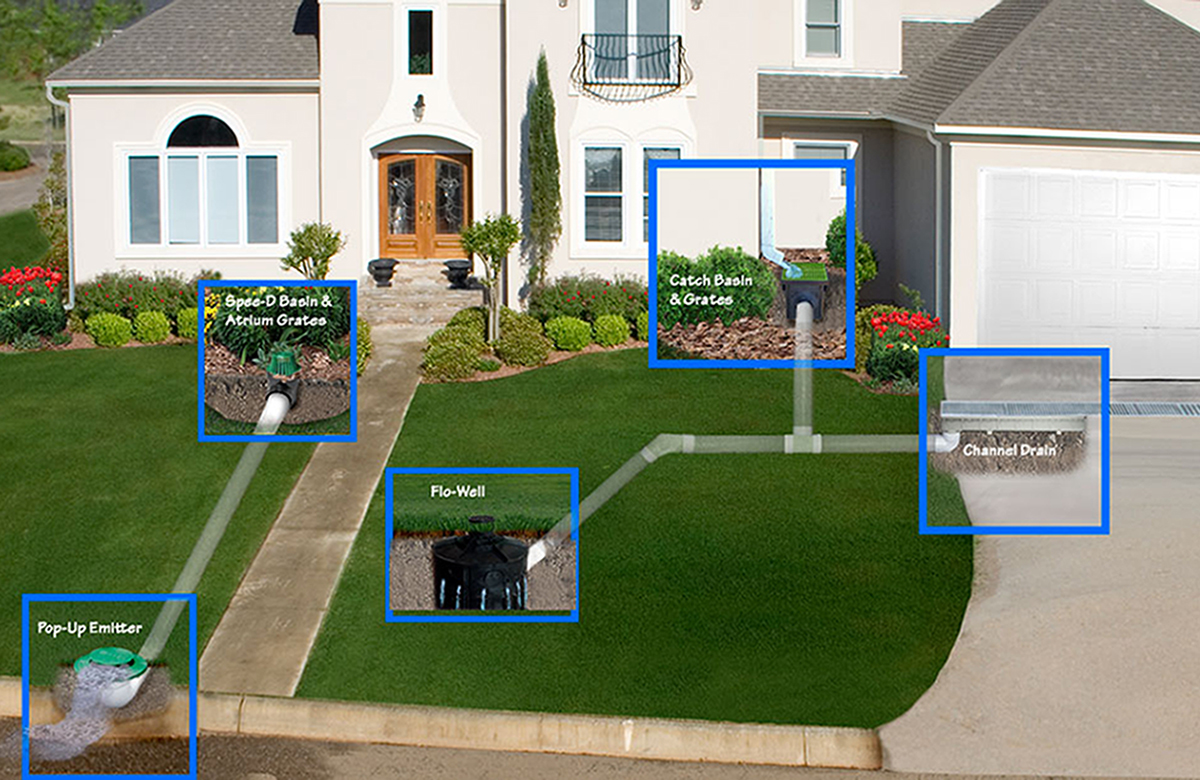Unlocking the Flow: The Ultimate Guide to Effective Drainage Services
When it comes to maintaining a healthy and functional home or property, effective drainage services play a crucial role. Proper drainage is essential for preventing water accumulation, which can lead to a myriad of problems, including structural damage, mold growth, and unpleasant odors. Understanding how drainage systems work and recognizing when professional intervention is needed can save homeowners time, money, and stress in the long run.
In this guide, we will explore the various aspects of drainage services, from routine maintenance to advanced solutions for complex issues. Whether you're dealing with slow drains, standing water in your yard, or the aftermath of heavy rainfall, having a solid understanding of drainage systems can help you unlock the flow of your property and ensure it remains safe and comfortable. Join us as we delve into the essential components of effective drainage services and how they can protect your investment.
Types of Drainage Services
Drainage services encompass a variety of solutions designed to manage water flow and prevent flooding. One common type is residential drainage services, which focus on homes and private properties. These services include the installation and maintenance of systems such as French drains, sump pumps, and dry wells. Homeowners often seek these services to address issues like water pooling in yards or basements, ensuring proper flow away from the foundation and enhancing overall property drainage.
Commercial drainage services cater to businesses and larger properties, handling more extensive drainage challenges. This can involve installing stormwater management systems, which help control runoff and prevent flooding on commercial sites. These services may also include regular inspections and maintenance of existing drainage infrastructure to ensure efficiency and compliance with local regulations. Proper commercial drainage solutions are essential for preserving business operations and protecting valuable assets.
Another important area is agricultural drainage services, which focus on managing water within farming operations. Poor drainage can lead to crop damage and reduced yield, making effective drainage systems vital for farmers. Services in this category often include the installation of tile drainage systems, ditches, and berms to redirect water and improve soil moisture conditions. By utilizing specialized drainage solutions, farmers can optimize their land for better productivity and sustainability.
Benefits of Professional Maintenance
Regular professional maintenance of drainage systems ensures optimal functionality, preventing minor issues from escalating into major problems. Professionals are trained to identify potential blockages, wear, and tear before they become critical. This proactive approach not only enhances the performance of the drainage system but also extends its lifespan, which can save homeowners significant costs in the long run.
Another key benefit of professional maintenance is the assurance of compliance with local regulations and standards. Experts are familiar with the latest codes and guidelines, ensuring that all drainage work meets legal requirements. This compliance reduces the risk of fines or mandatory repairs, providing peace of mind to property owners. Moreover, adhering to these regulations helps maintain property value, as well-maintained systems are viewed more favorably in the real estate market.
Lastly, professional drainage services offer advanced technology and techniques that may not be available to the average homeowner. Using specialized equipment, professionals can conduct thorough inspections and perform effective cleaning. This level of expertise leads to more efficient resolutions for drainage issues, minimizing disruption and restoring optimal flow quickly. By investing in professional maintenance, homeowners not only safeguard their property but also contribute to a healthier environment through effective waste management.
Common Drainage Problems and Solutions
One of the most frequent issues homeowners face is standing water in their yards, which can lead to a host of problems including property damage and mosquito breeding grounds. This usually occurs when the landscape is not properly graded, causing water to accumulate in low spots. To resolve this issue, it is essential to assess the grading of your yard and consider installing French drains or swales to redirect the water away from the foundation and other critical areas. This not only improves the aesthetics of your yard but also protects your home from potential water damage.
Another common drainage problem is clogged drains, which can cause water to back up into sinks, showers, and outdoor areas. This is often the result of debris buildup, such as leaves, dirt, or grease. Regular maintenance is key to preventing clogs; homeowners should schedule periodic inspections of their drainage systems. For existing clogs, employing plumbing snakes or hydro jetting services can effectively clear out blockages and restore flow to the drainage system.
Lastly, stormwater runoff can overwhelm residential drainage systems, leading to flooding and erosion. This issue is particularly problematic in regions with heavy rainfall. To combat this, homeowners can implement rain gardens or install permeable paving to help absorb stormwater. Additionally, increasing the number of downspouts and extending them away from the foundation can further mitigate flooding risks. These proactive measures not only safeguard the property but also contribute to the overall health of the local ecosystem.
